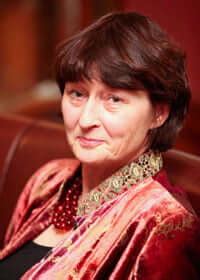A Quote by John Fowles
Adulthood is not an age, but a stage of knowledge of self.
Related Quotes
I think that young people are less attached to items and objects now. They're less attached to consuming things and accruing things because they see it as a system that doesn't necessarily work and give them a sense of adulthood and fulfillment. They're much more in tune with wanting to achieve a skill, a form of self-expression, or a body of knowledge that fulfills the same function, fulfills their adulthood.
First, my people must be taught the knowledge of self. Then and only then will they be able to under-stand others and that which surrounds them. Anyone who does not have a knowledge of self is considered a victim of either amnesia or unconsciousness and is not very competent. The lack of knowledge of self is a prevailing condition among my people here in America. Gaining the knowledge of self makes us unite into a great unity. Knowledge of self makes you take on the great virtue of learning.
Self-knowledge is not the knowledge of a dead self, self-knowledge is the knowledge of the process of the self. It is an alive phenomenon. The self is not a thing, it is an event, it is a process. Never think in terms of things, the self is not there inside you just like a thing waiting in your room. The self is a process: changing, moving, arriving at new altitudes, moving into new planes, going deeper into new depths. Each moment much work is going on and the only way to encounter this self is to encounter it in relationship.
Old age is the fourth stage. By the time one reaches this stage of his journey, he must have discovered that the joys available in this world are trivial and fleeting. He must be equipped with the higher knowledge of spiritual joy, available through delving into the inner spring of Bliss. Through his experiences, his heart must have softened and be filled with compassion. He has to be engrossed in promoting the progress of all beings without distinction. And he must be eager to share with others the knowledge he has accumulated and the benefit of his experiences.
I feel that adolescence has served its purpose when a person arrives at adulthood with a strong sense of self-esteem, the ability to relate intimately, to communicate congruently, to take responsibility, and to take risks. The end of adolescence is the beginning of adulthood. What hasn't been finished then will have to be finished later.
When you reach a certain age, you have fulfilled your childhood dream and whatever your first or second adulthood led you to do. Then you're in your third adulthood, the one that leads to the grave, and you ask yourself, "What will I do between now and then?" Instead of thinking in terms of glamour, you start thinking in terms of reform - your contribution to the world.






































